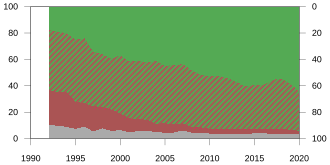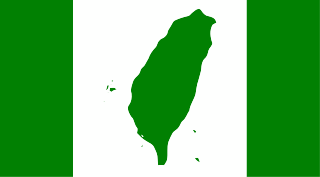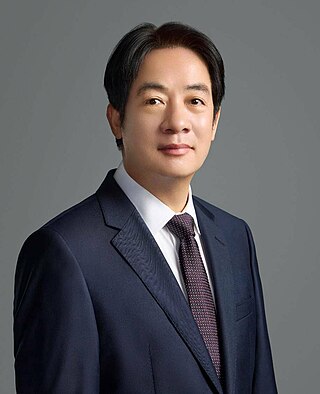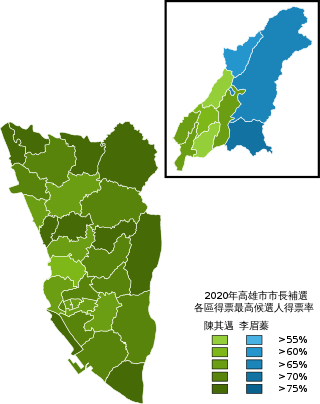
This page lists public opinion polls that have been conducted in relation to the issue of Taiwanese identity.

This page lists public opinion polls that have been conducted in relation to the issue of Taiwanese identity.
| Date(s) | Polling organisation/client | Sample size | Lead | ||||
|---|---|---|---|---|---|---|---|
| Taiwanese (臺灣人 / 台灣人) | Chinese (中國人) | Both | No response / Do not know | ||||
| December 2023 | National Chengchi University [1] | 14933 | 61.7% | 2.4% | 32.0% | 3.9% | 29.7% |
| March 14, 2023 | Taiwan Public Opinion Foundation [2] | 1073 | 78.0% | 7.7% | 9.1% | 5.2% | 68.9% |
| December 2022 | National Chengchi University [1] | 12173 | 63.3% | 2.5% | 30.6% | 3.6% | 32.7% |
| April 19, 2022 | Taiwan Public Opinion Foundation [3] | 1071 | 80.1% | 5.3% | 10.2% | 4.4% | 69.9% |
| December 2021 | National Chengchi University [1] | 12026 | 62.3% | 2.8% | 31.7% | 3.2% | 30.6% |
| July 21, 2021 | Taiwan Public Opinion Foundation [4] | 1072 | 76.8% | 7.5% | 11.3% | 4.4% | 65.5% |
| December 2020 | National Chengchi University [1] | 11490 | 64.3% | 2.6% | 29.9% | 3.2% | 34.4% |
| February 25, 2020 | Taiwan Public Opinion Foundation [5] | 1097 | 83.2% | 5.3% | 6.7% | 4.8% | 76.5% |
| December 2019 | National Chengchi University [1] | 16276 | 58.5% | 3.3% | 34.7% | 3.5% | 23.8% |
| November 24, 2019 | CommonWealth Magazine [6] | 1073 | 61.9% | 6.5% | 28.3% | 3.3% | 33.6% |
| December 2018 | National Chengchi University [1] | 9490 | 54.5% | 3.6% | 38.2% | 3.7% | 16.3% |
| December 2017 | National Chengchi University [1] | 13455 | 55.5% | 3.7% | 37.0% | 3.7% | 18.5% |
| December 2016 | National Chengchi University [1] | 11490 | 59.5% | 3.3% | 33.3% | 4.0% | 26.2% |
| December 2015 | National Chengchi University [1] | 22509 | 59.5% | 3.3% | 33.3% | 4.0% | 26.2% |
| December 2014 | National Chengchi University [1] | 20009 | 60.6% | 3.5% | 32.5% | 3.5% | 28.1% |
| December 2013 | National Chengchi University [1] | 13359 | 57.1% | 3.8% | 35.8% | 3.3% | 21.3% |
| December 2012 | National Chengchi University [1] | 18011 | 54.3% | 3.6% | 38.5% | 3.6% | 15.8% |
| December 2011 | National Chengchi University [1] | 23779 | 52.2% | 3.9% | 40.3% | 3.7% | 11.9% |
| December 2010 | National Chengchi University [1] | 13163 | 52.7% | 3.7% | 39.8% | 3.8% | 12.9% |
| December 2009 | National Chengchi University [1] | 20244 | 51.6% | 4.2% | 39.8% | 4.4% | 11.8% |
| December 15, 2009 | CommonWealth Magazine [7] | -- | 62% | 8% | 22% | 8% | 40.2% |
| March 11, 2009 | TVBS [8] | 1113 | 49% | 3% | 44% | 4% | 5% |
| December 2008 | National Chengchi University [1] | 16280 | 48.4% | 4.0% | 43.1% | 4.5% | 5.2% |
| June 9, 2008 | TVBS [9] | 1015 | 45% | 4% | 45% | 6% | 0% |
| December 2007 | National Chengchi University [1] | 13910 | 43.7% | 5.4% | 44.7% | 6.2% | 1.0% |
| December 2006 | National Chengchi University [1] | 13193 | 44.2% | 6.3% | 44.9% | 4.6% | 0.7% |
| December 2005 | National Chengchi University [1] | 7939 | 45.0% | 7.2% | 43.4% | 4.4% | 1.6% |
| December 2004 | National Chengchi University [1] | 34854 | 41.1% | 6.2% | 47.7% | 5.0% | 6.6% |
| December 2003 | National Chengchi University [1] | 14247 | 42.5% | 8.3% | 43.3% | 5.9% | 0.8% |
| December 2002 | National Chengchi University [1] | 10003 | 41.2% | 9.2% | 43.7% | 5.8% | 2.5% |
| December 2001 | National Chengchi University [1] | 10679 | 41.6% | 10.6% | 43.1% | 4.7% | 1.5% |
| December 2000 | National Chengchi University [1] | 11062 | 36.9% | 12.5% | 44.1% | 6.5% | 7.2% |
| December 1999 | National Chengchi University [1] | 9273 | 39.6% | 16.3% | 42.5% | 5.8% | 2.9% |
| December 1998 | National Chengchi University [1] | 14063 | 36.2% | 16.3% | 39.6% | 7.8% | 3.4% |
| December 1997 | National Chengchi University [1] | 3910 | 34.0% | 19.2% | 41.4% | 5.3% | 7.4% |
| December 1996 | National Chengchi University [1] | 10666 | 24.1% | 17.6% | 49.3% | 9.0% | 25.2% |
| December 1995 | National Chengchi University [1] | 21402 | 25.0% | 20.7% | 47.0% | 7.3% | 22.0% |
| December 1994 | National Chengchi University [1] | 1209 | 20.2% | 26.2% | 44.6% | 8.9% | 18.4% |
| December 1992 | National Chengchi University [1] | 4120 | 17.6% | 25.5% | 46.4% | 10.5% | 7.9% |
| Date(s) | Polling organisation/client | Sample size | Lead | |||
|---|---|---|---|---|---|---|
| Taiwanese | Chinese | No response / Do not know | ||||
| February 5, 2015 | Taiwan Braintrust [10] | 1079 | 89.5% | 6.0% | 5.5% | 83.5% |
| June 9, 2008 | TVBS [9] | 1015 | 68% | 18% | 14% | 50% |

The Democratic Progressive Party (DPP) is a Taiwanese nationalist and centre to centre-left political party in Taiwan. It is currently the major ruling party in Taiwan, controlling both the presidency and the central government, also the dominant party in the Pan-Green Coalition.

Taiwan, officially the Republic of China (ROC), is a country in East Asia. It is located at the junction of the East and South China Seas in the northwestern Pacific Ocean, with the People's Republic of China (PRC) to the northwest, Japan to the northeast, and the Philippines to the south. The territories controlled by the ROC consist of 168 islands with a combined area of 36,193 square kilometres. The main island of Taiwan, also known as Formosa, has an area of 35,808 square kilometres, with mountain ranges dominating the eastern two-thirds and plains in the western third, where its highly urbanized population is concentrated. The capital, Taipei, forms along with New Taipei City and Keelung the largest metropolitan area. With around 23.9 million inhabitants, Taiwan is among the most densely populated countries.

Taiwan, officially the Republic of China (ROC), is governed in a framework of a representative democratic republic under a five-power system first envisioned by Sun Yat-sen in 1906, whereby under the constitutional amendments, the President is head of state and the Premier is head of government, and of a multi-party system. Executive power is exercised by the Executive Yuan. Legislative power is vested primarily in the Legislative Yuan. The judiciary is independent of the executive and the legislature. In addition, the Examination Yuan is in charge of validating the qualification of civil servants, and the Control Yuan inspects, reviews, and audits the policies and operations of the government.

The Taiwan independence movement is a political movement which advocates the formal declaration of an independent and sovereign Taiwanese state, as opposed to Chinese unification or the status quo in Cross-Strait relations.
The controversy surrounding the political status of Taiwan or the Taiwan issue is an ongoing dispute on the political status of Taiwan, currently controlled by the Republic of China (ROC). This dispute arose in the mid-twentieth century.

The Kaohsiung Incident, also known as the Formosa Incident, the Meilidao Incident, or the Formosa Magazine incident, was a crackdown on pro-democracy demonstrations that occurred in Kaohsiung, Taiwan, on 10 December 1979 during Taiwan's martial law period.
"Chinese Taipei" is the term used in various international organizations and tournaments for groups or delegations representing the Republic of China (ROC), a country commonly known as Taiwan.

The Anti-Secession Law is a law of the People's Republic of China, passed by the 3rd Session of the 10th National People's Congress. It was ratified on March 14, 2005, and went into effect immediately. President Hu Jintao promulgated the law with Presidential Decree No. 34. Although the law, at ten articles, is relatively short, Article 8 formalized the long-standing policy of the PRC to use military means against Taiwan independence in the event peaceful means become otherwise impossible. The law does not explicitly equate "China" with the People's Republic of China.

Presidential elections were held in Taiwan on 22 March 2008. Kuomintang (KMT) nominee Ma Ying-jeou won with 58% of the vote, ending eight years of Democratic Progressive Party (DPP) rule. Along with the 2008 legislative election, Ma's landslide victory brought the Kuomintang back to power in the Republic of China.

Cross-Strait relations are the relations between China and Taiwan.

Lai Ching-te, also known as William Lai, is a Taiwanese politician and former physician who is currently serving as the 8th president of the Republic of China (Taiwan) since May 2024. He is the third member from the Democratic Progressive Party (DPP) to assume the office of president. He is also the third incumbent vice president to succeed to the presidency, and the first of which to assume the office through election instead of immediate succession. He has also served as the chair of the DPP since 2023.

Local elections were held in Taiwan on 27 November 2010 to elect mayors, councillors, and village chiefs of special-municipalities, known as the Five Municipalities Elections. Mayoral candidates for the Kuomintang were elected in New Taipei, Taipei, and Taichung, while candidates for the Democratic Progressive Party were elected in Kaohsiung and Tainan. On the eve of the election, Sean Lien, son of former Vice President Chan Lien, was shot in face when he was campaigning for a Kuomintang New Taipei councillor candidate.

The White Terror was the political repression of Taiwanese civilians and political dissenters under the Kuomintang (KMT)-ruled government. The period of White Terror is generally considered to have begun when martial law was declared in Taiwan on 19 May 1949, which was enabled by the 1948 Temporary Provisions against the Communist Rebellion, and ended on 21 September 1992 with the repeal of Article 100 of the Criminal Code, allowing for the prosecution of "anti-state" activities. The Temporary Provisions were repealed a year earlier on 22 April 1991 and martial law was lifted on 15 July 1987.
Taiwan Competitiveness Forum is a policy think tank in Taiwan led by academics supporting Chinese Unification.

Hou Yu-ih is a Taiwanese politician and former police officer. He has been the incumbent mayor of New Taipei since 25 December 2018. Previously, he served as Director-General of the National Police Agency from 2006 to 2008 and as acting mayor of New Taipei City from October 2015 to January 2016. He was the Kuomintang's official candidate for the 2024 Taiwanese presidential elections. He first joined the party during the leadership of Chiang Kai-shek.

Chou Tzu-yu, known mononymously as Tzuyu, is a Taiwanese singer based in South Korea. She is a member of the South Korean girl group Twice, formed by JYP Entertainment in 2015.
Follow Alana is a travel television show hosted by Alana Nichols, and produced by Aurora Digital Media.
This is a list of nationwide public opinion polls that have been conducted relating to the general election for the 2020 Taiwanese general election. The persons named in the polls are declared candidates or have received media speculation about their possible candidacy.

The 2020 Kaohsiung mayoral by-election was held on 15 August 2020 following a successful recall attempt. The registered candidates were Chen Chi-mai representing the Democratic Progressive Party, Li Mei-jhen representing the Kuomintang, and Wu Yi-jheng representing the Taiwan People's Party. Chen Chi-mai won the by-election by a landslide margin with slightly over 70 percent of the votes. He replaced acting mayor Yang Ming-jou on 24 August 2020.

Simon Chang cabinet refers to the Government of the Republic of China (Taiwan) from 1 February to 20 May 2016, headed by Premier Simon Chang. Most popular in the past eight years of Kuomintang governance, it was the first ministry led by an independent premier since 1928, and the last under President Ma Ying-jeou after the ruling party was defeated in the presidential election.